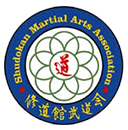Like most other koryu, or “ancient schools,” the various systems of suieijutsu each have (or had) their own specialties, which were often influenced by geographical location and clan affiliation:
- Shinden Ryu focused on long distance swimming
- Kankai Ryu concentrated on swimming in the ocean
- Suifu Ryu was directed toward swimming in river rapids
- Kobori Ryu includes much of the above, and it was what the bushi studied to learn to engage an opponent in the water while wearing armor.
Kobori Ryu Today
Kobori Ryu students learned to tread water by moving their legs in a manner a bit similar to an eggbeater. Today, you can see people involved in Western water polo and synchronized swimming do something vaguely reminiscent of this Kobori Ryu technique. The purpose of this water treading skill was to keep a vertical body position, which allowed the bushi to use a sword or gun and even shoot arrows while in a river.
Kobori Ryu still exists today in Japan, where it is taught on a relatively limited basis. Students are no longer concerned with outdoor warfare, as is the case with most koryu today, and their focus is on using the training to develop their minds and bodies to live well.
To learn more about the history of suieijutsu, click here!
SMAA Can Help You Earn Martial Arts Rank Certificates
Do you want to learn more about the history of suieijutsu?
Two of the world’s leading experts in suieijutsu are SMAA officials in Japan. By attending the Shudokan Martial Arts Association, you can learn more about the history of this fascinating martial arts style.
If martial arts are your passion, you can earn prestigious martial arts rank certificates in legitimate, historical Japanese martial arts. To get started, call (734) 729-0330 or contact us here.












